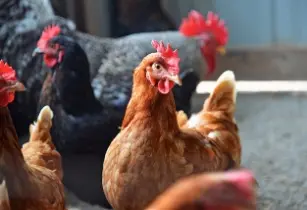Dr Sakho, Secretary-General for Senegals Ministry of Agriculture, opened the Invest in Africa seminars at VIV Europe 2018 with an upbeat call for investment in the West African countrys poultry industry
He highlighted the advantages of investing in Senegal, including a stable political climate, prioritisation by the government of the poultry industry by creating a group to incorporate all the country's poultry industry organisations, a focus on strong regulations, and support for financial partners.
Capacity building is another priority for Senegal, according to Dr Sakho. He cited a training programme for agriculture as a means of building capacity and creating a more productive industry.
Dr Makhtar Diouf, director of the National Center for Breeding Improvement, said that investment in Senegal was "obvious" particularly with geographical access to neighbouring countries, such as Mauritania, Guinea Bissau, Guinea Conakry and Mali. He said that breeding improvement among poultry producers had a positive effect on relieving poverty.
Priorities to further improve poultry production in Senegal include working to reduce the impact of diseases such as avian influenza and parasitic conditions, improving habitat, such as ensuring egg-eating snakes are kept away from farms and seeking to improve the genetic quality of birds. Breeds such as Cobb, Ross, Hubbard and Hyline are popular in Senegal. In terms of keeping the disease at bay, Senegal will not accept imports or exports of live birds.
Industry partners are also important, Dr Diouf told the conference. These include government departments such as the ministries for agriculture and the environment, international cooperation such as USAID and NGOs.
The Senegalese poultry industry is "booming", said Dr Diouf. Year-on-year from 2015 to 2016, there was a 16.96 per cent increase in poultry production and a 45 per cent increase in five years.
A representative from the Interprofessional Poultry Association of Senegal (IPAS) talked about investment along the entire poultry value chain and developing young people in the industry. The four pillars for the industry are capacity-building, feed, boosting production and services to support producers. He outlined the structure of IPAS with its general assembly, executive bureau, colleges and focus on "durable development", research and development, and access to information for producers.
The Horizon 2025 plan aims to boost the industry through approaches such as promoting increased egg consumption with the aim of creating 50,000 jobs and focusing on strategic positions in markets across sub-Saharan Africa.




